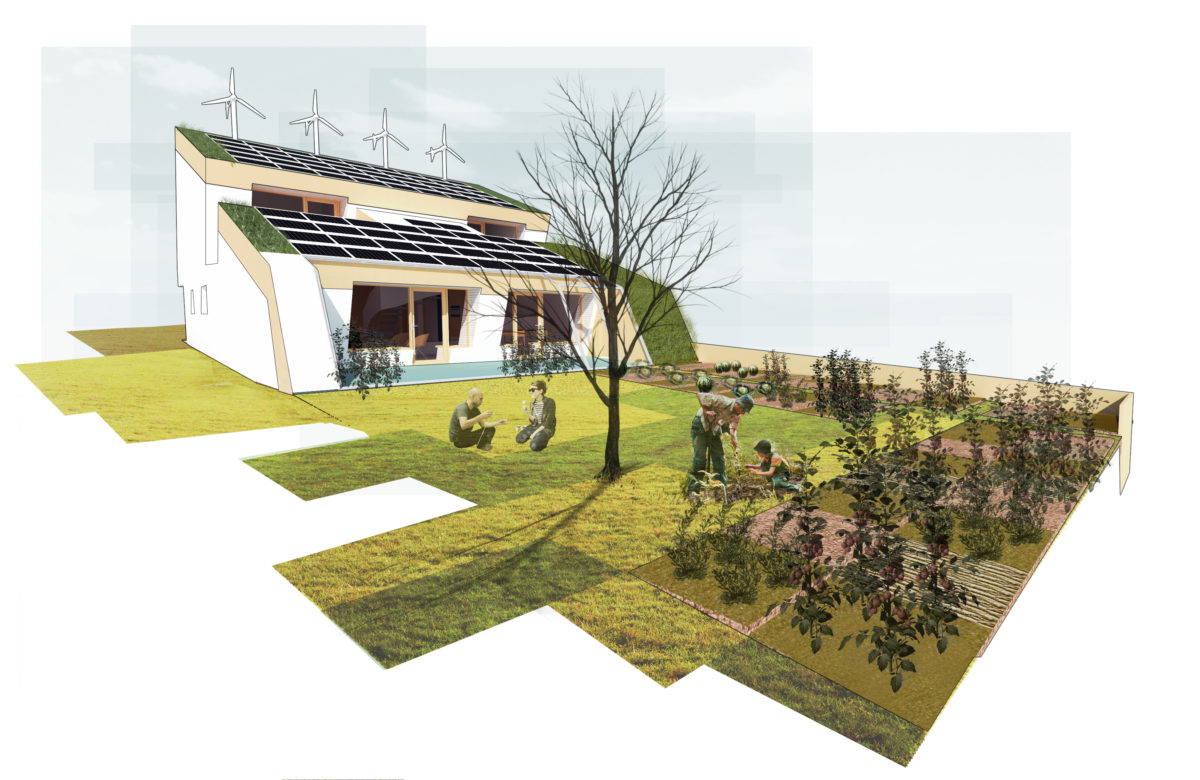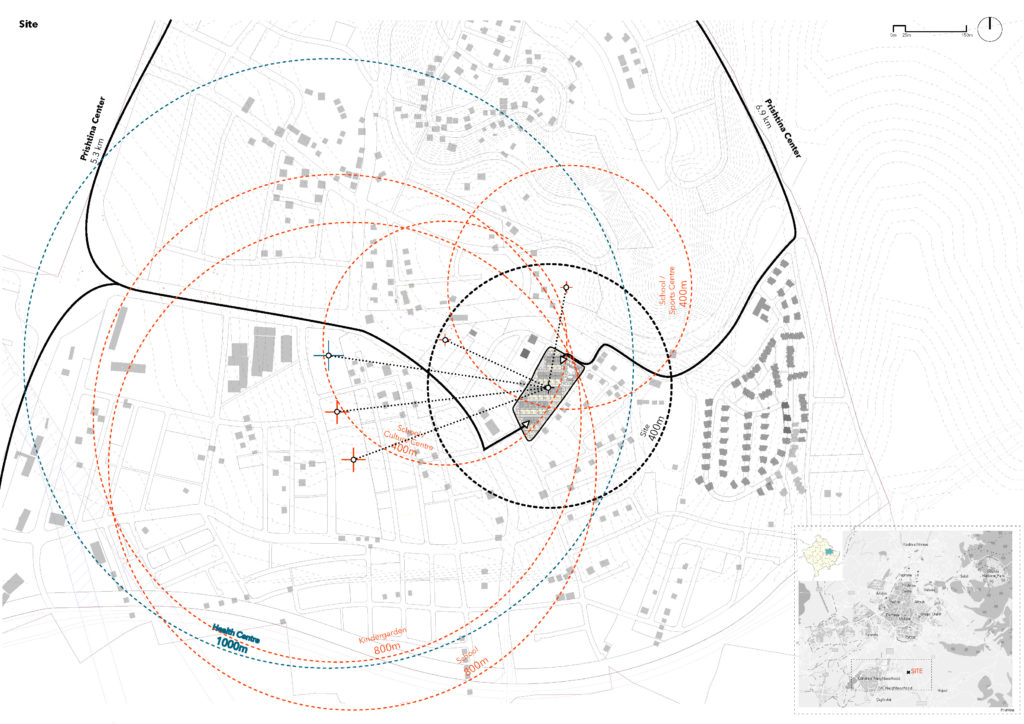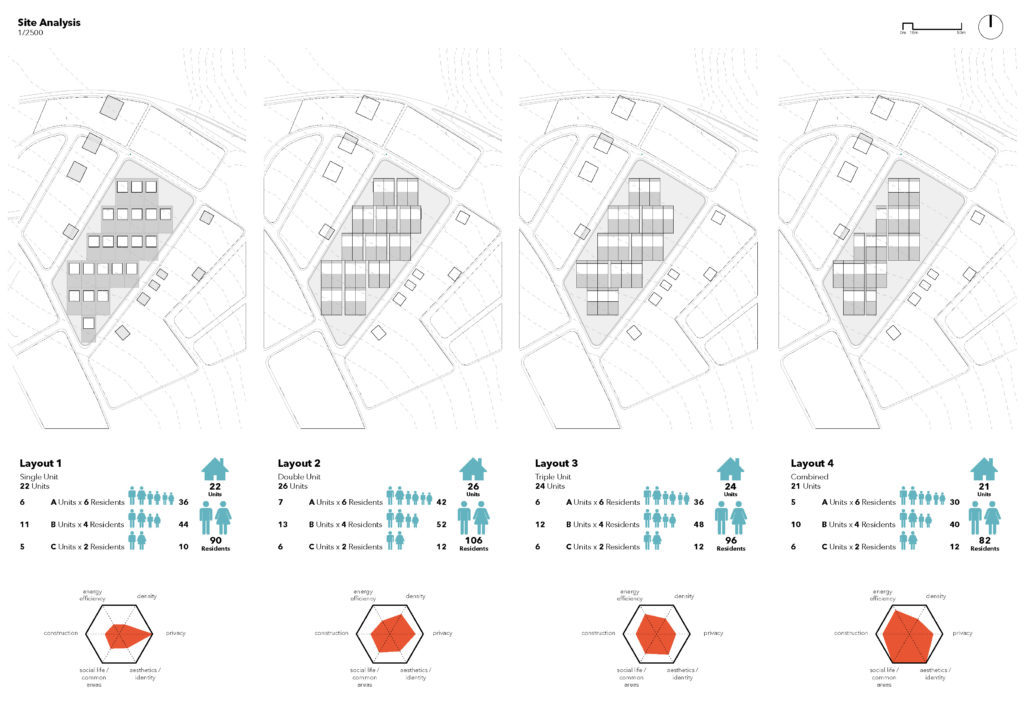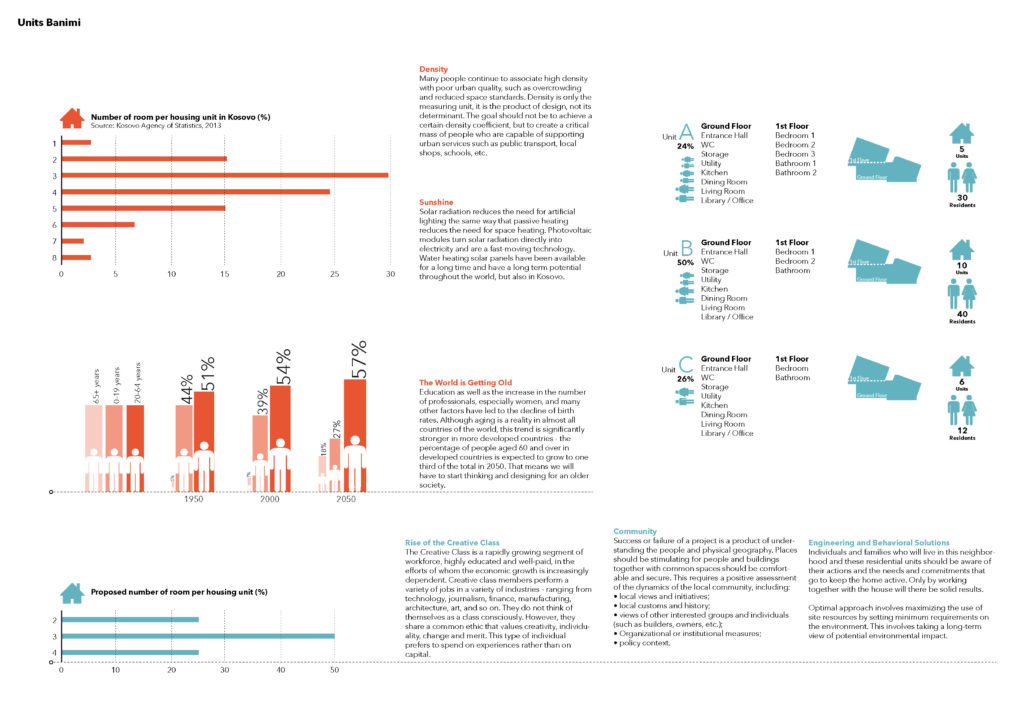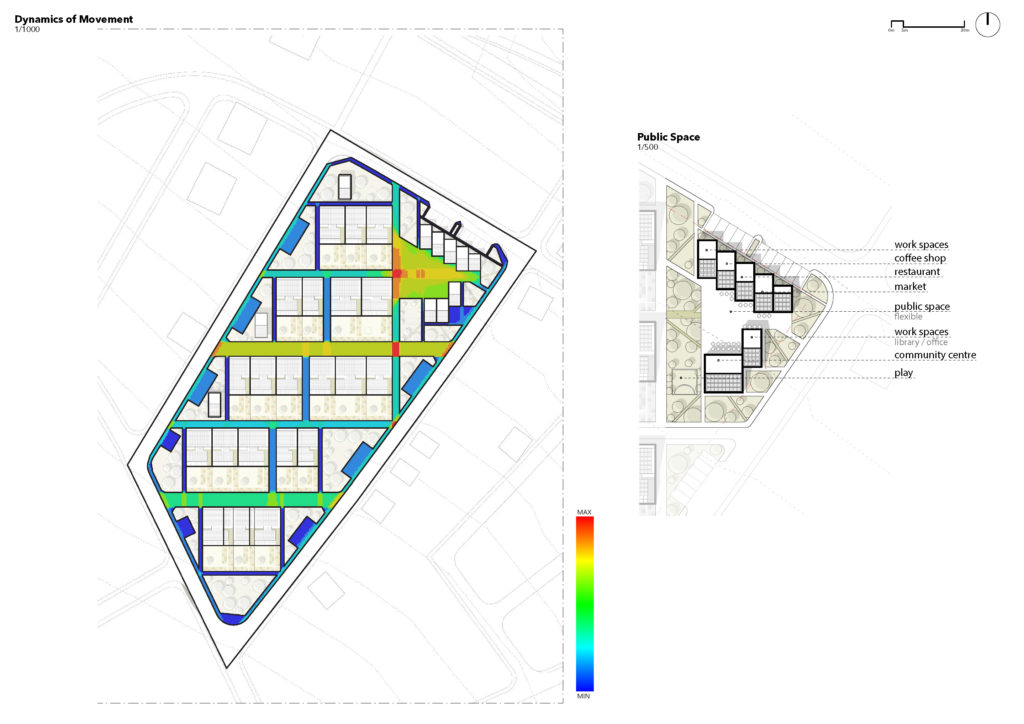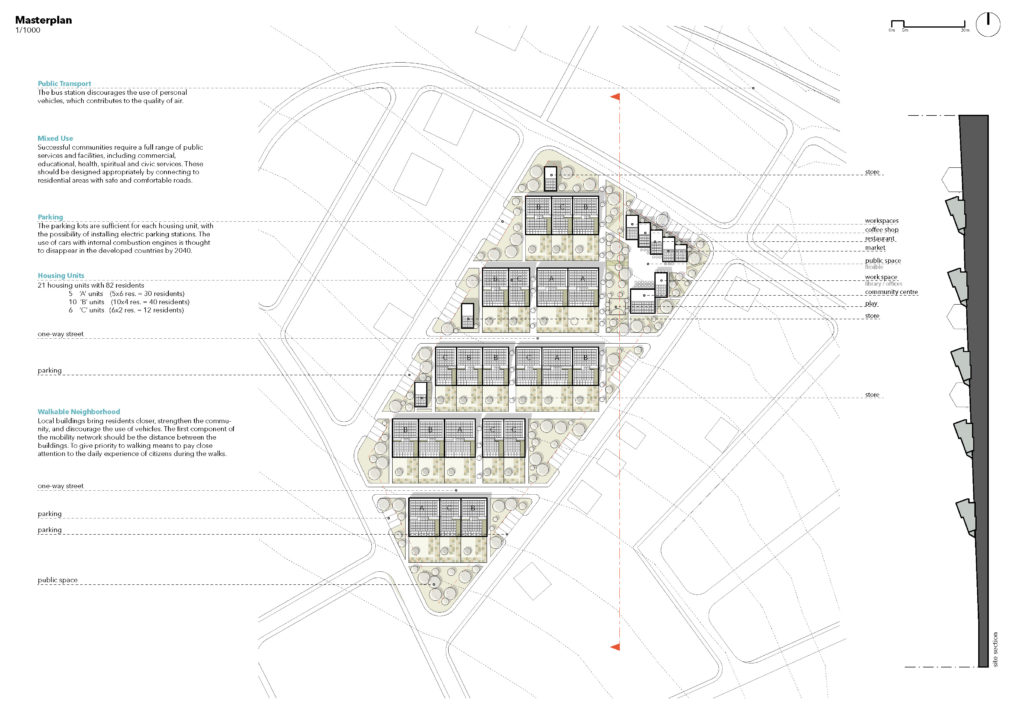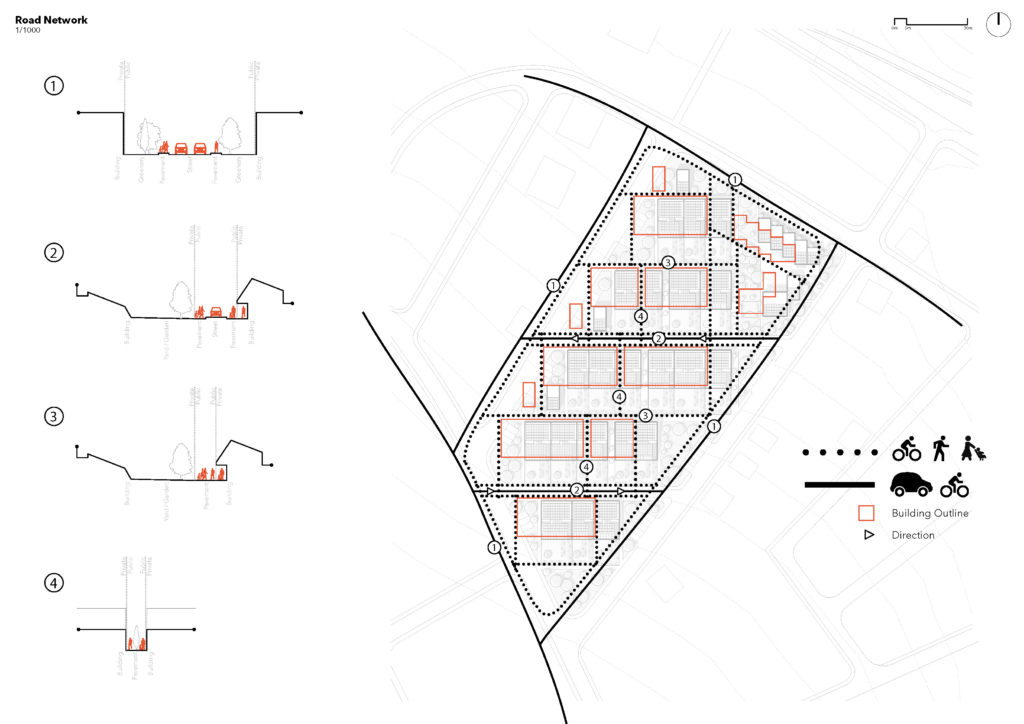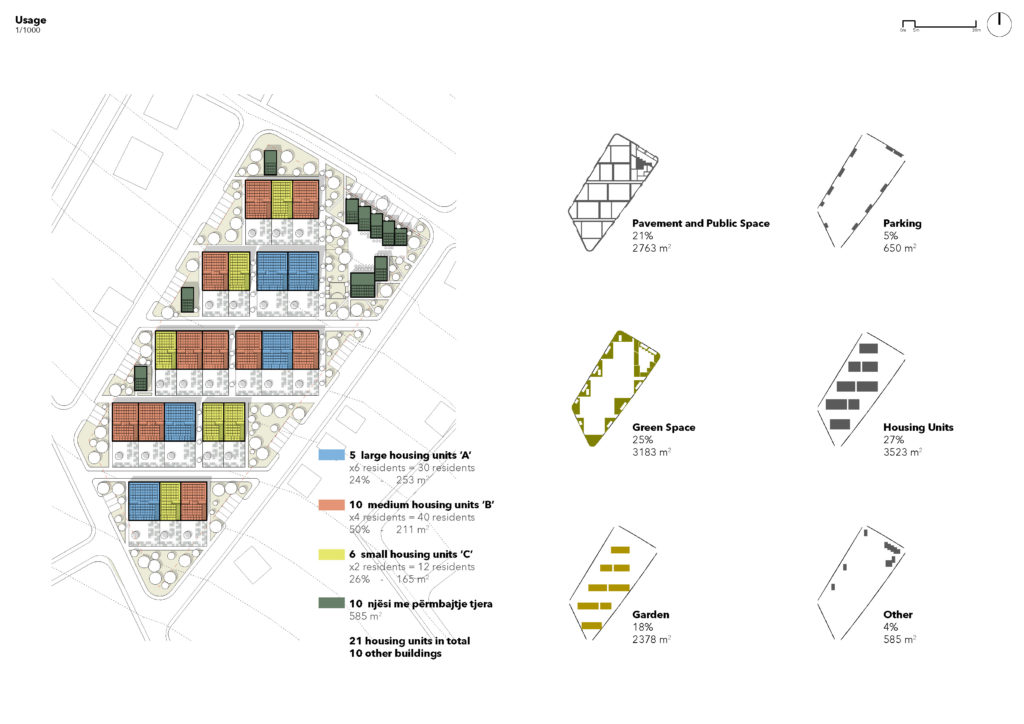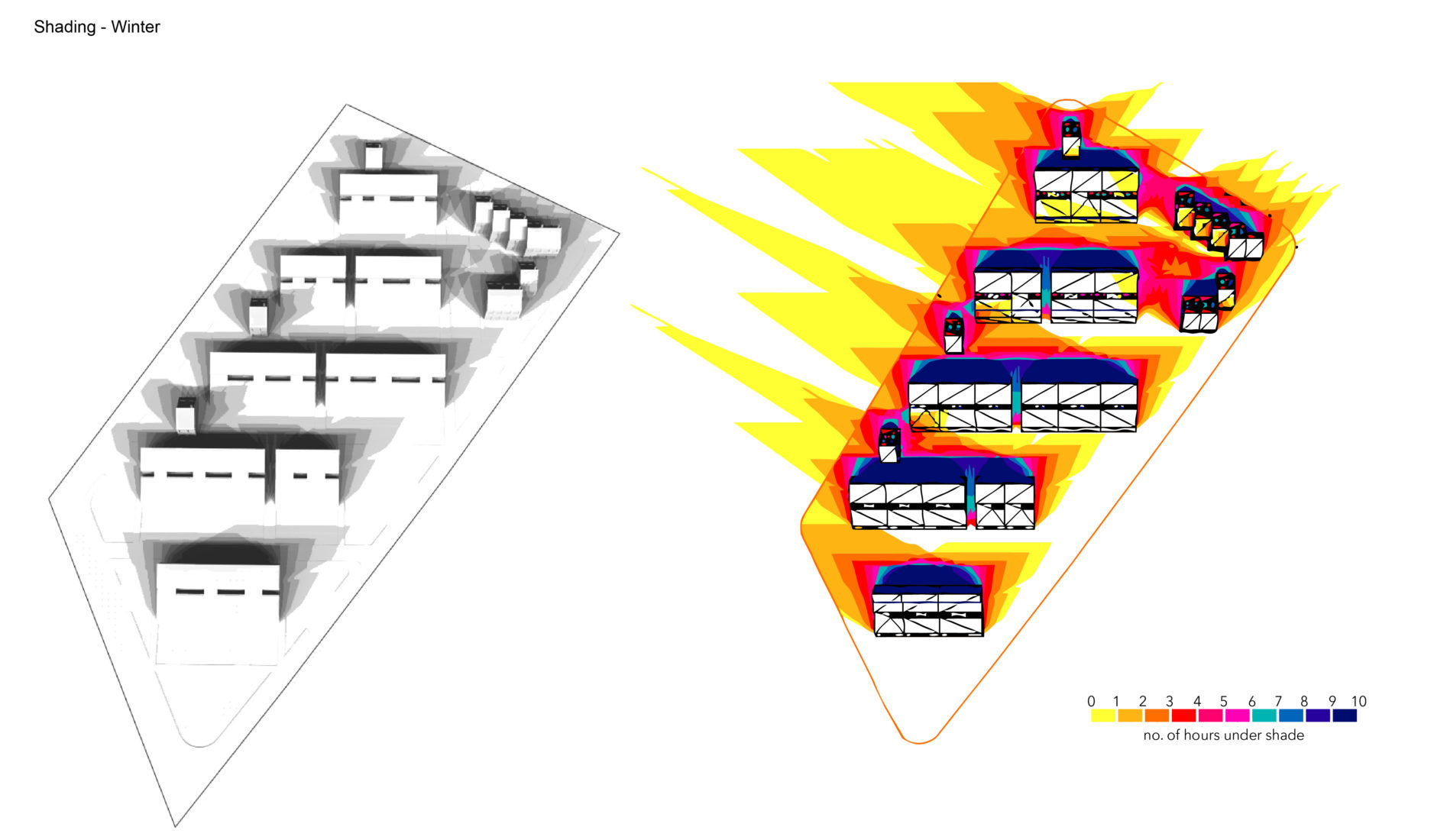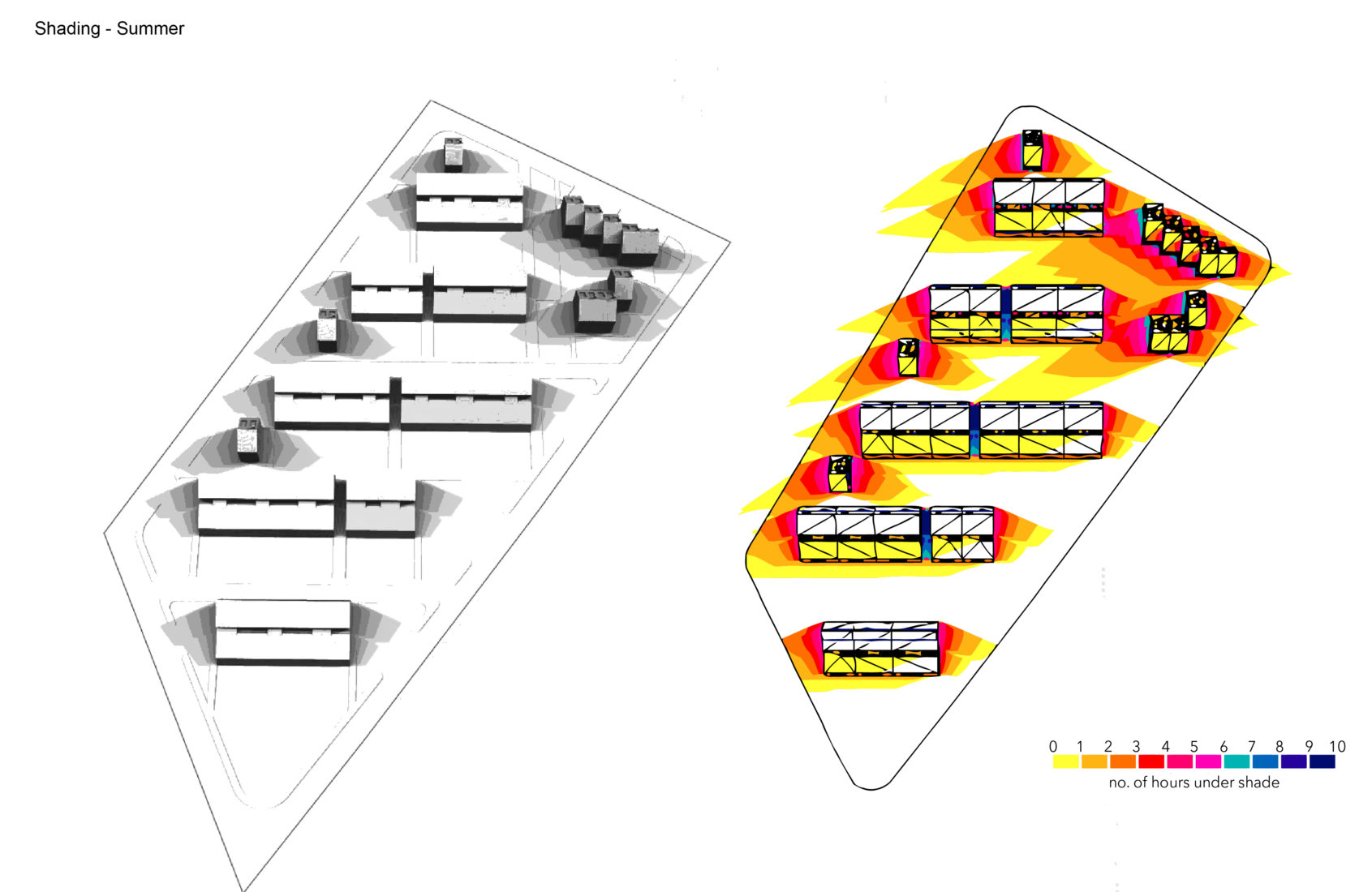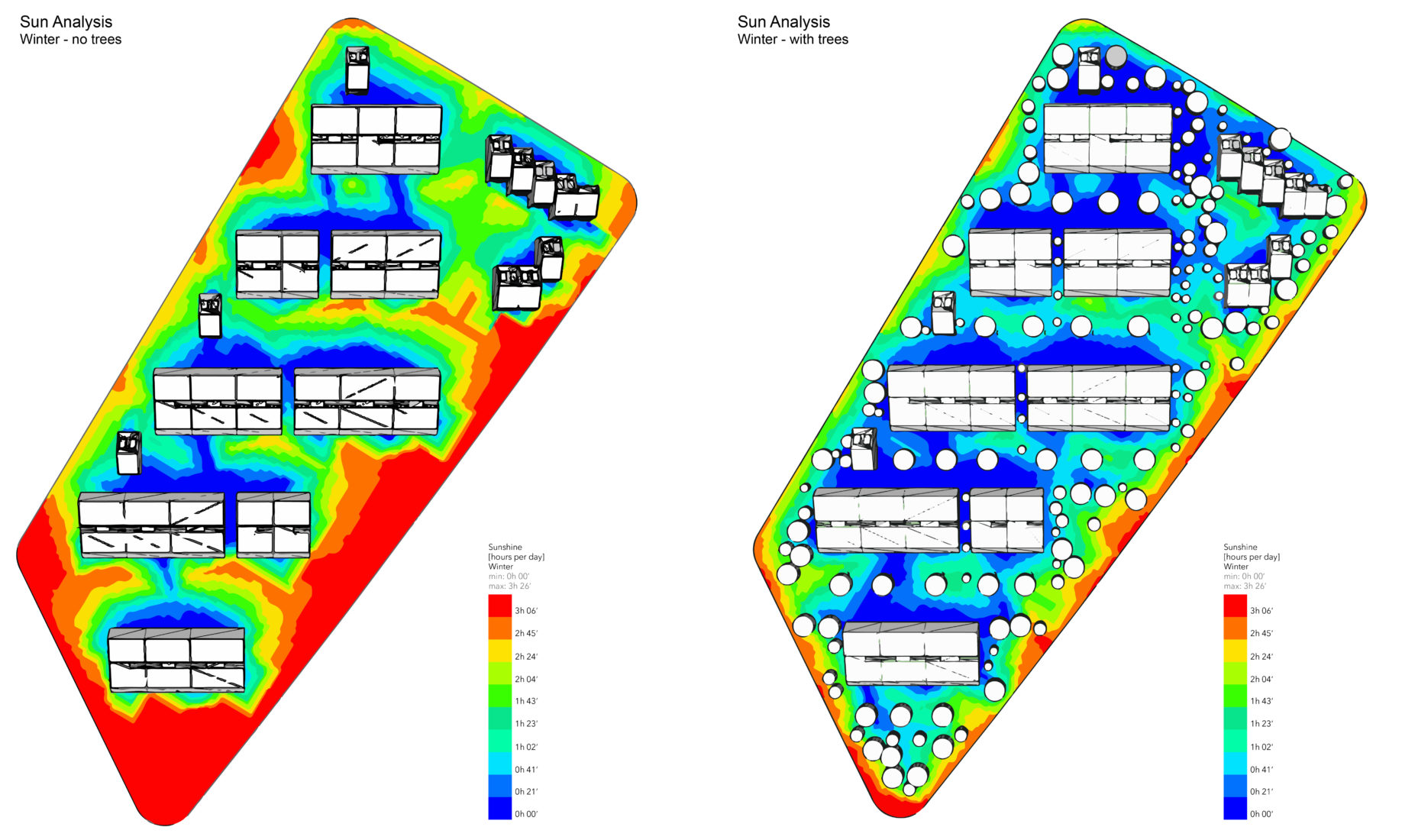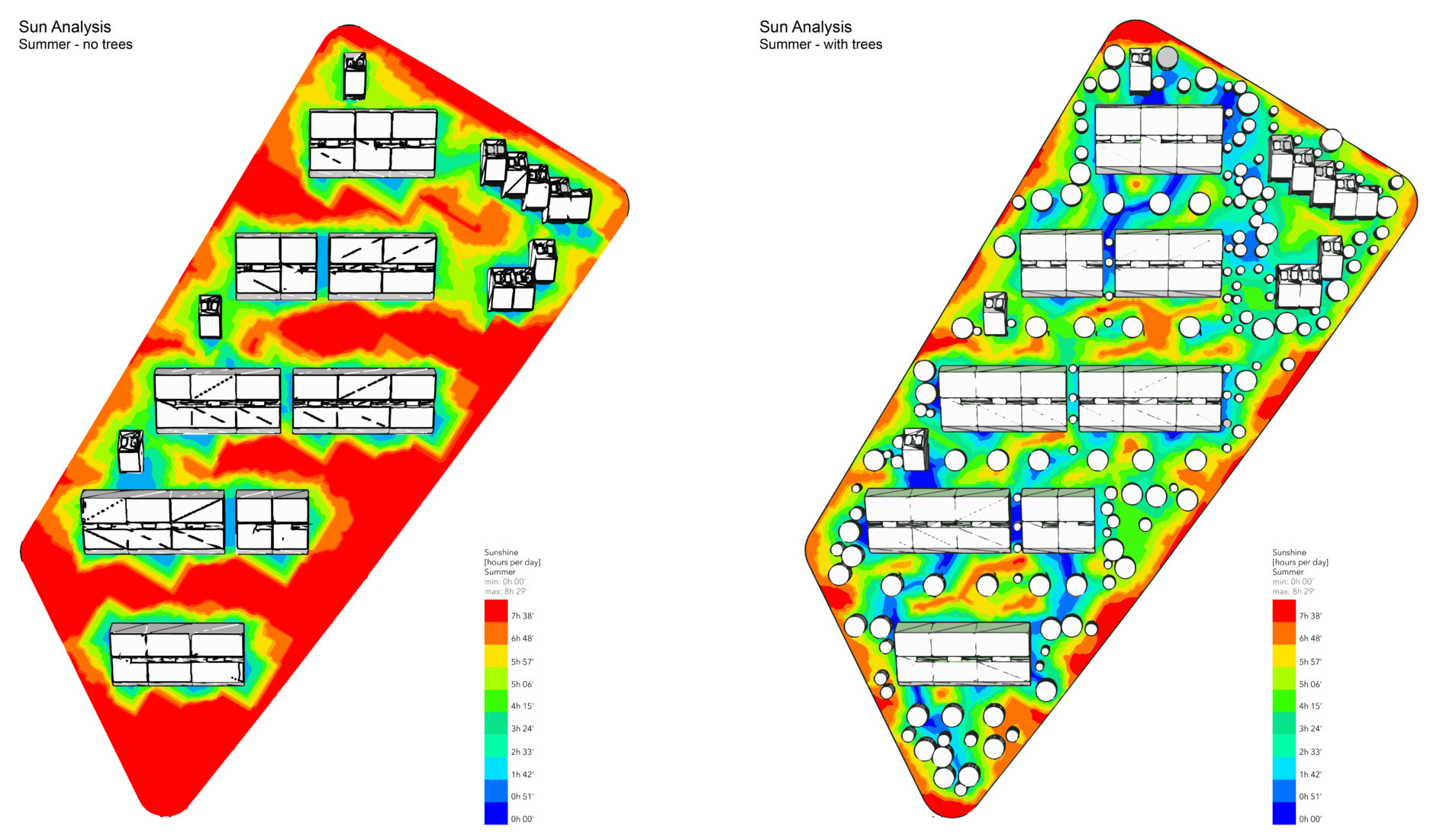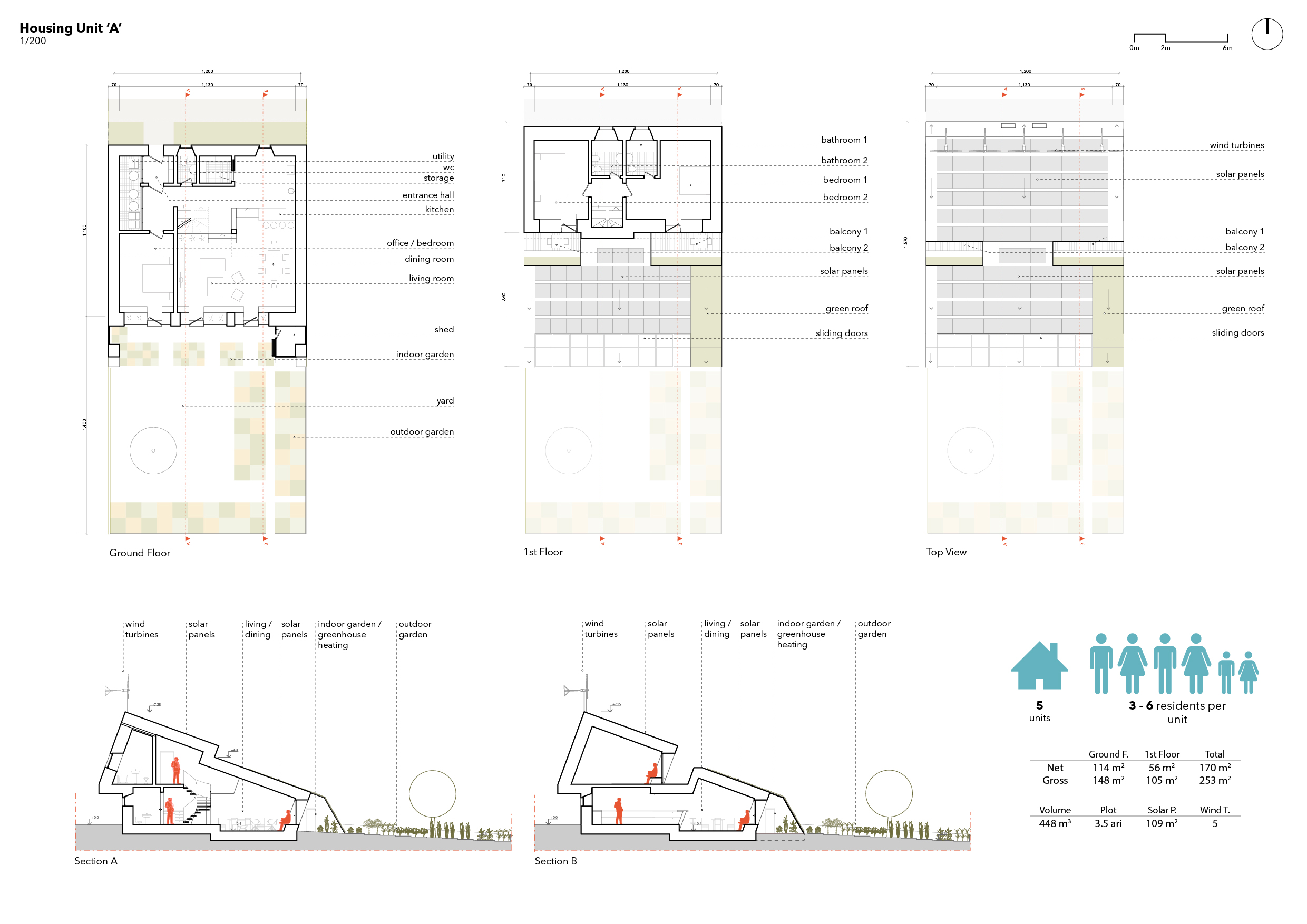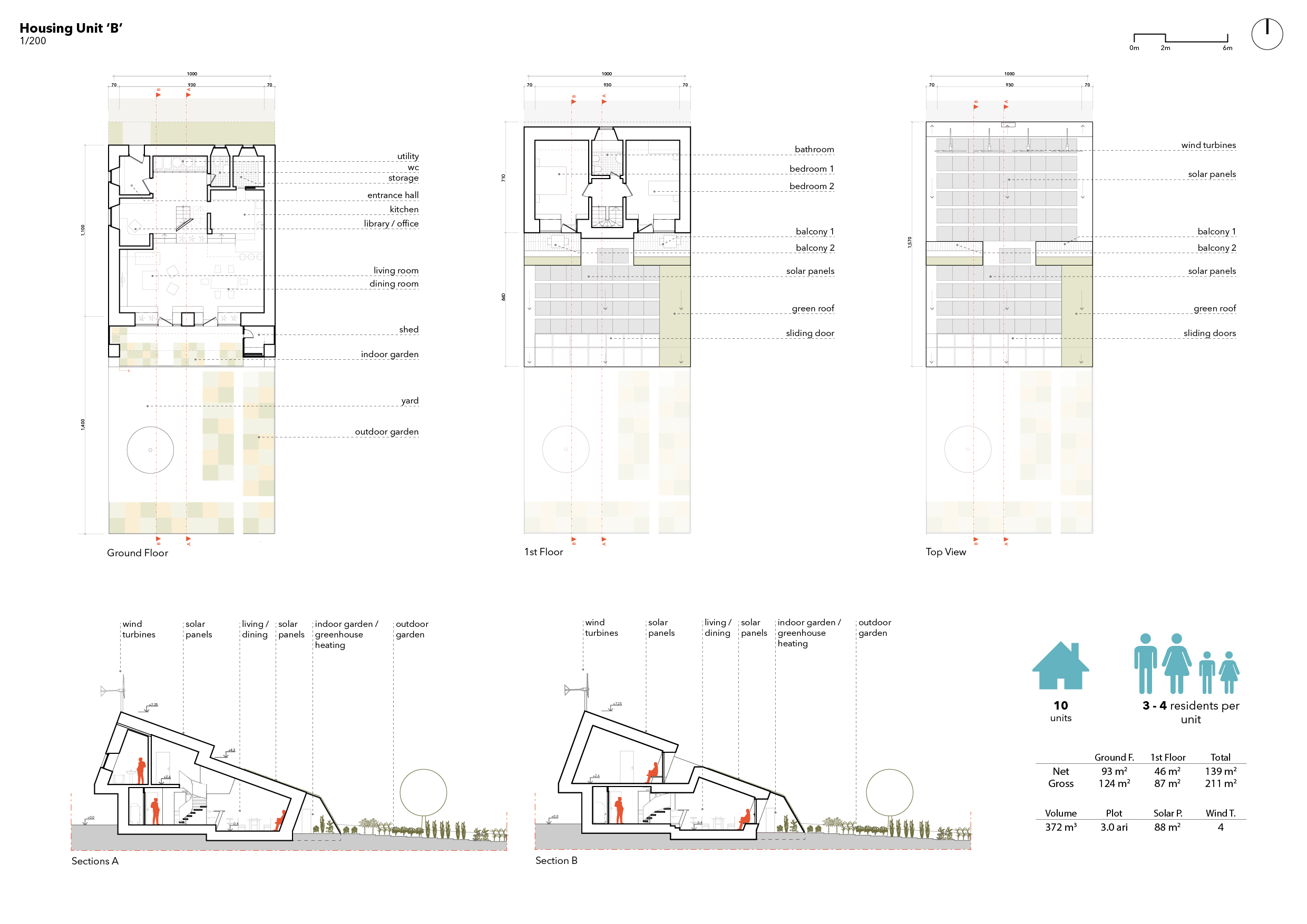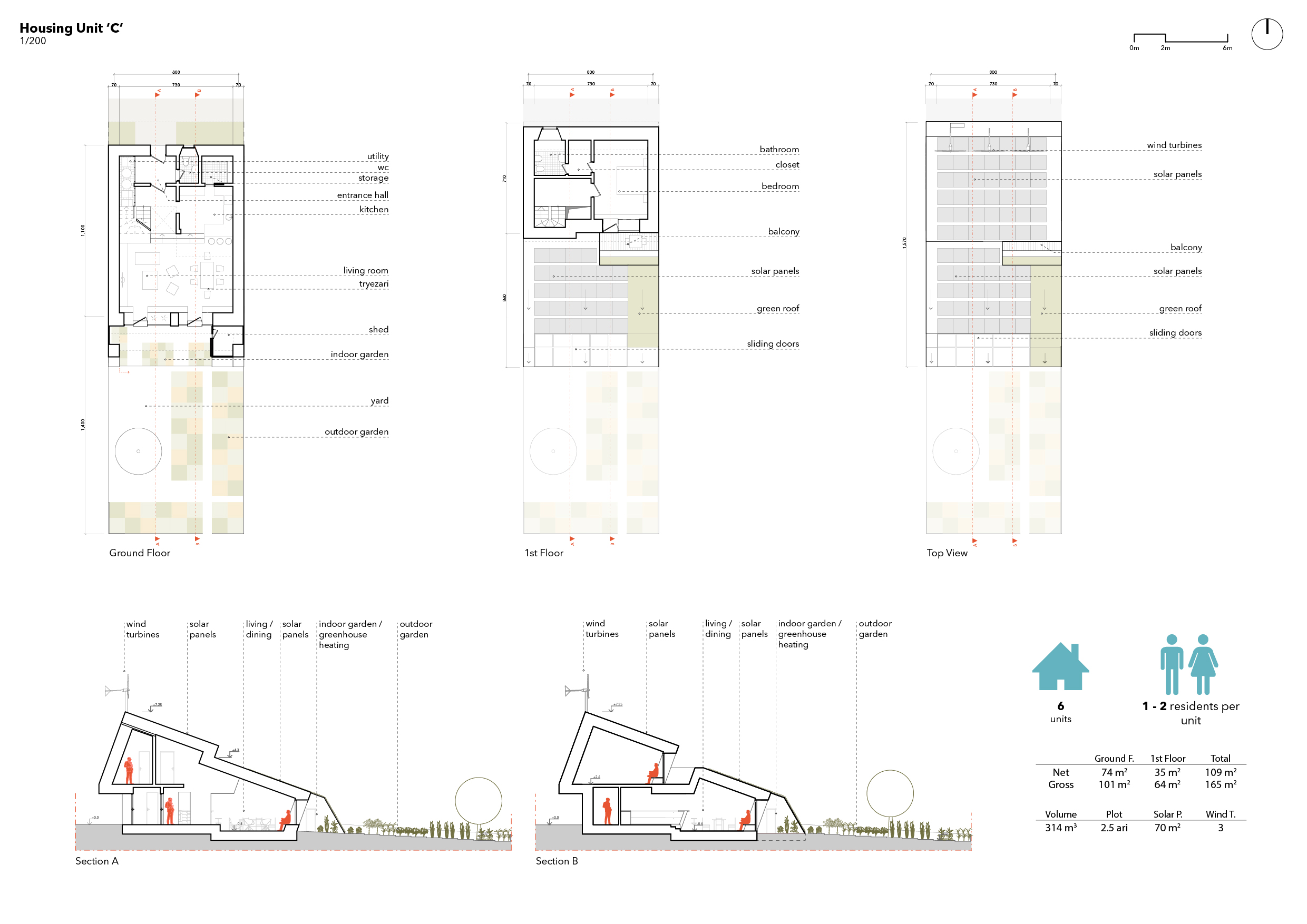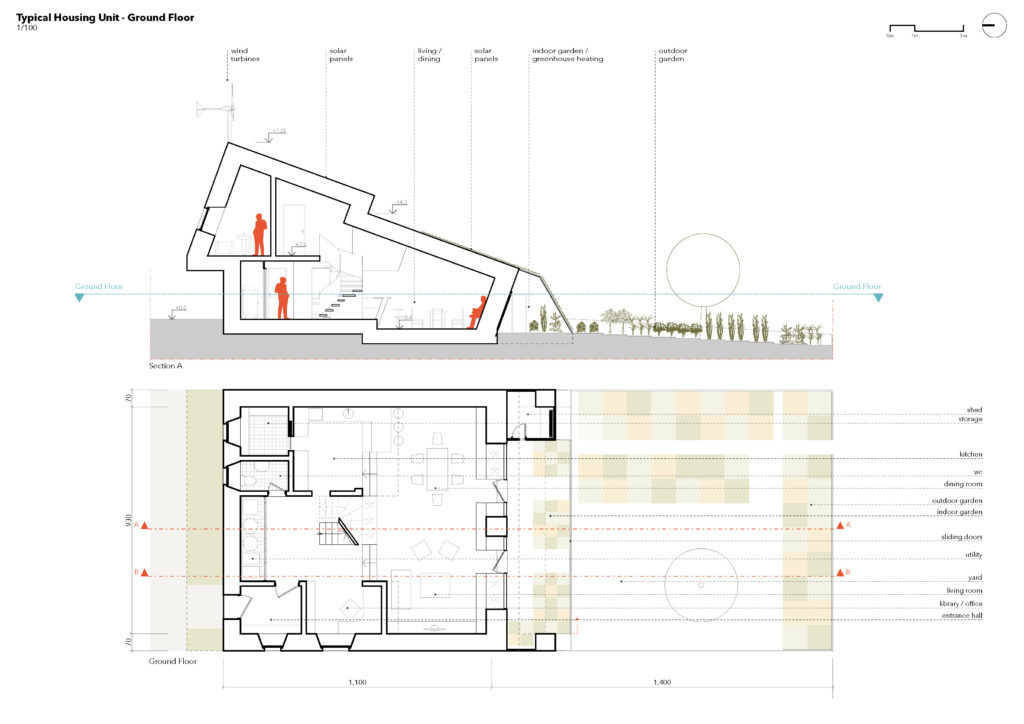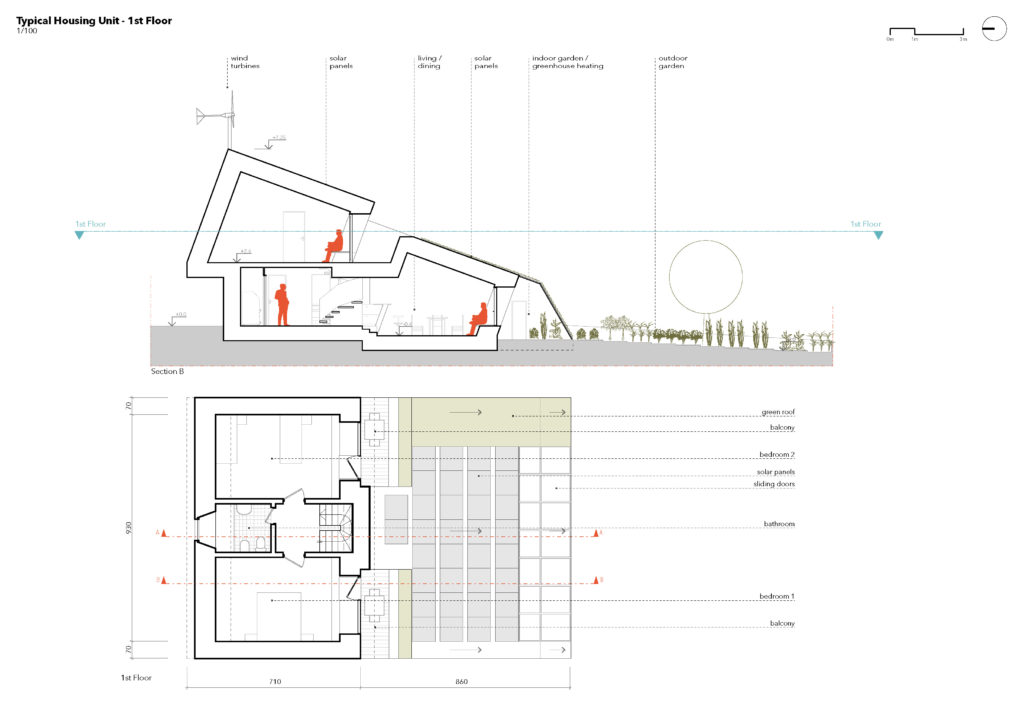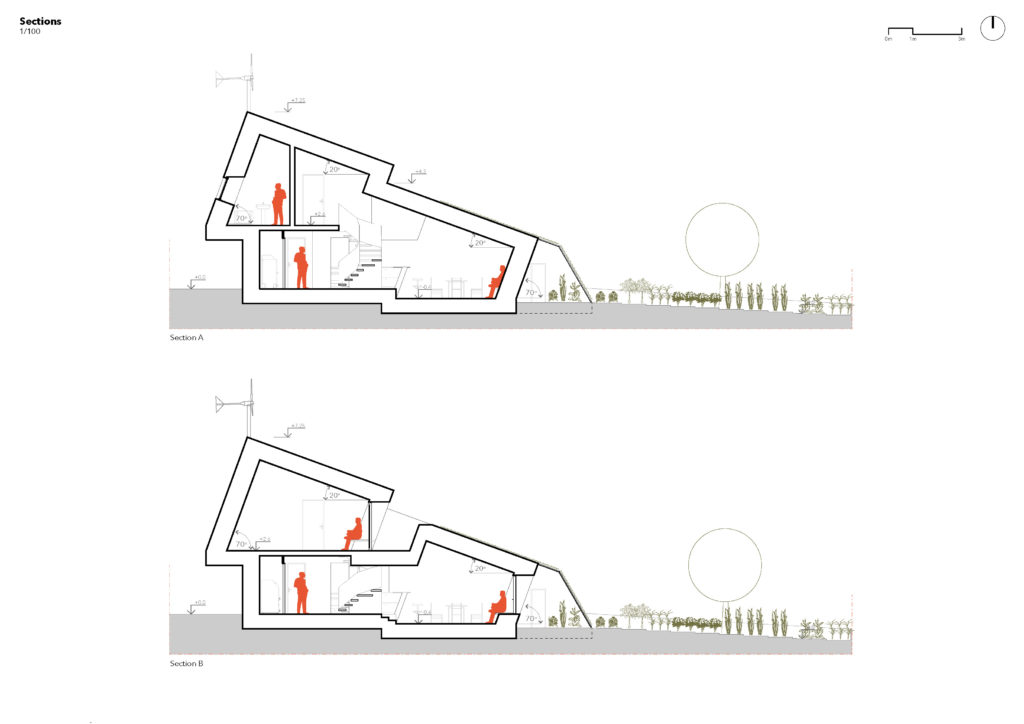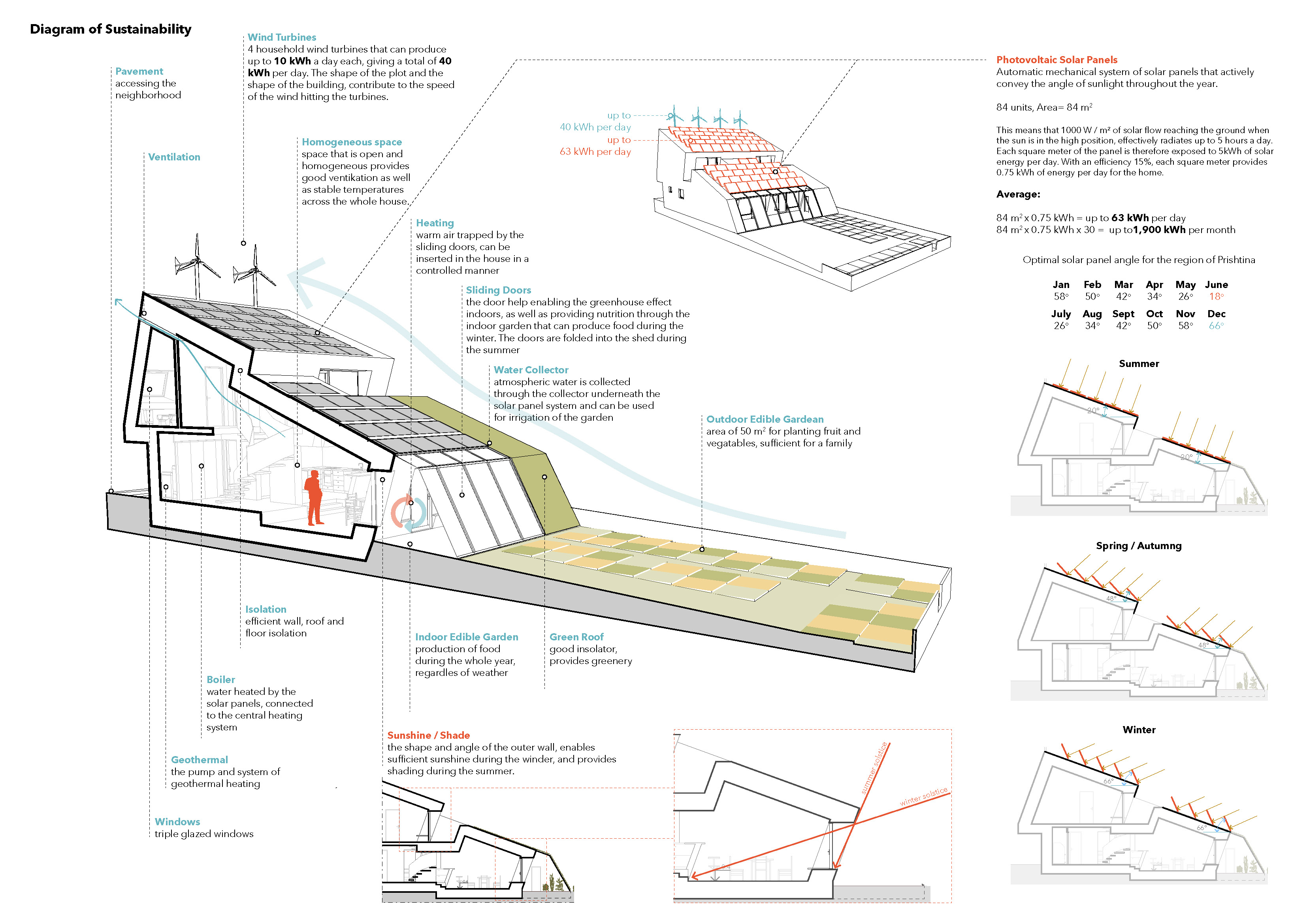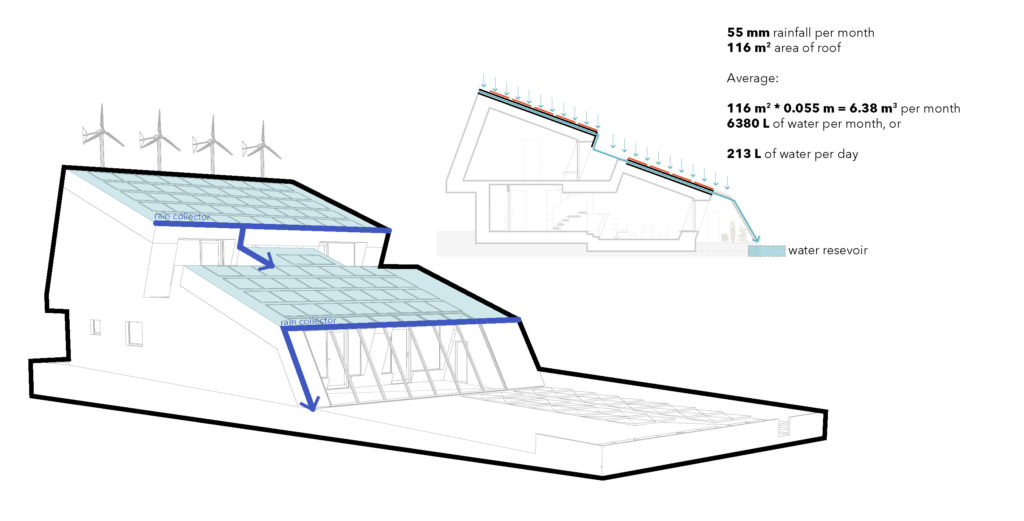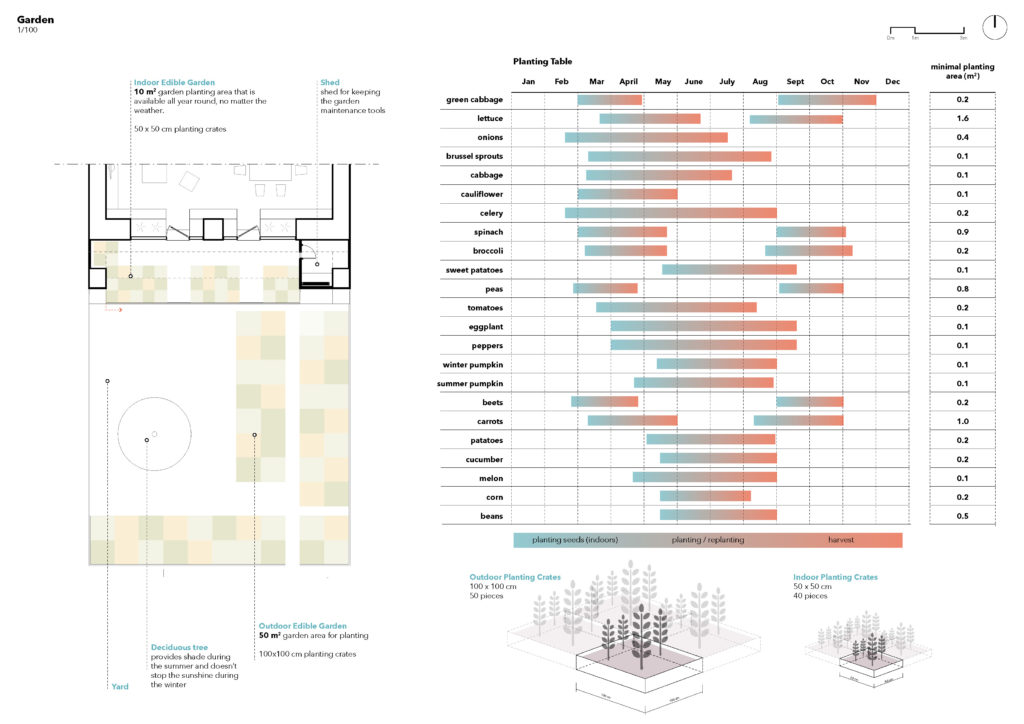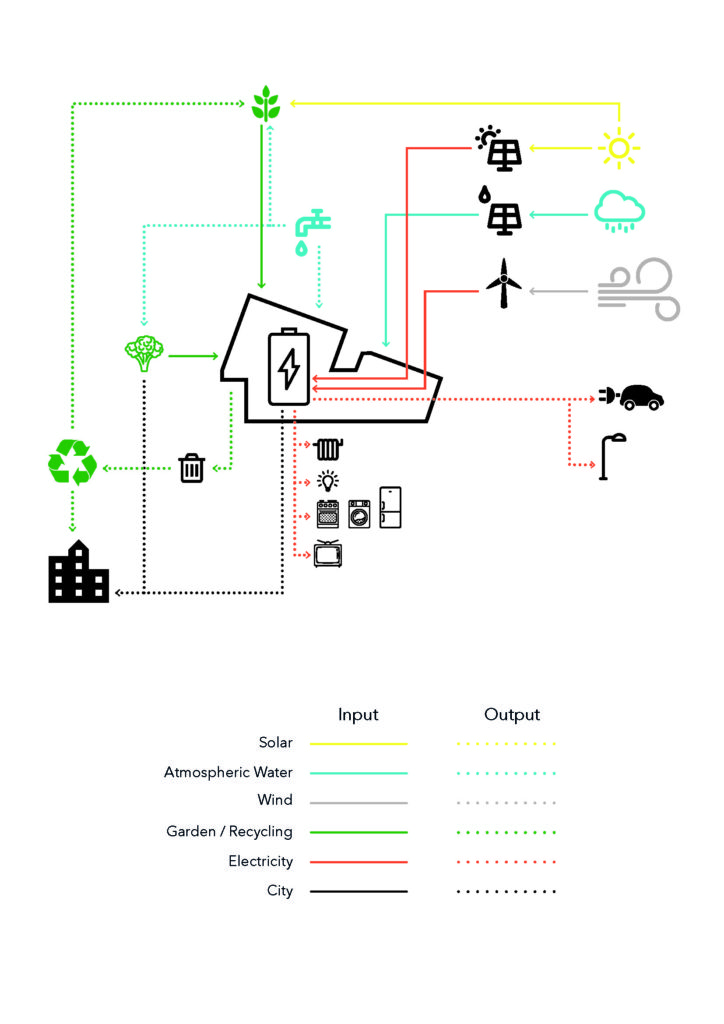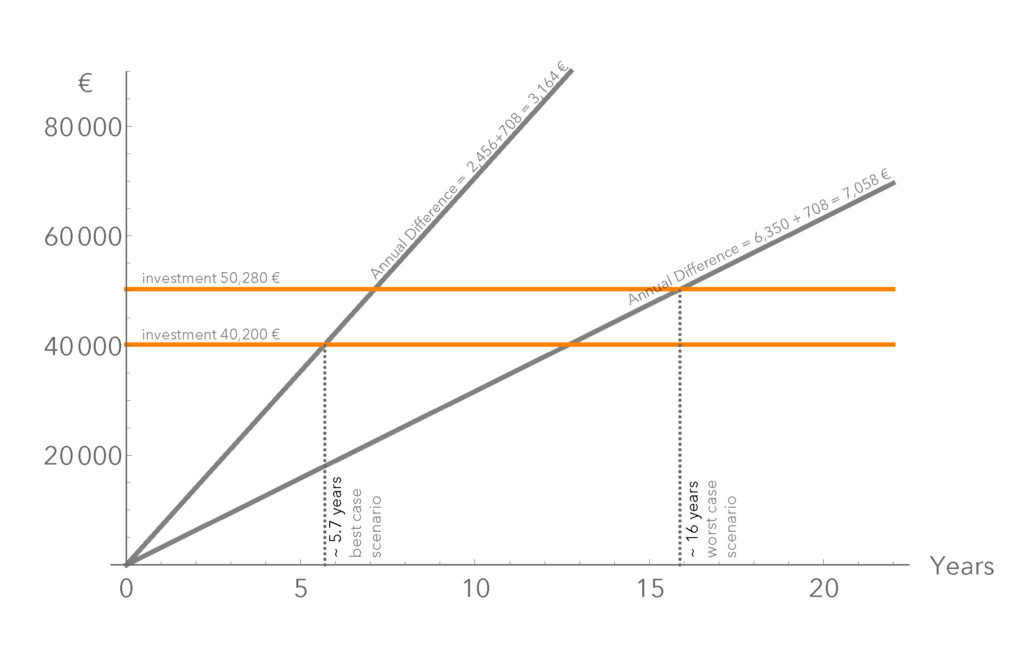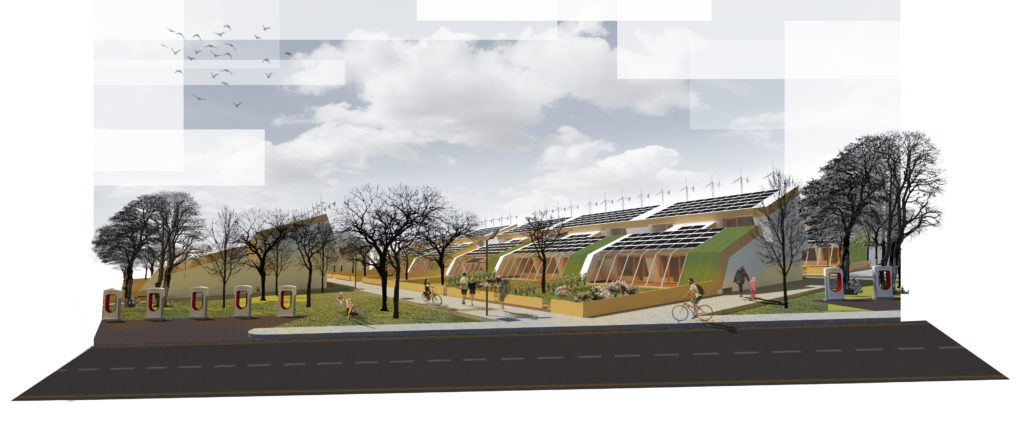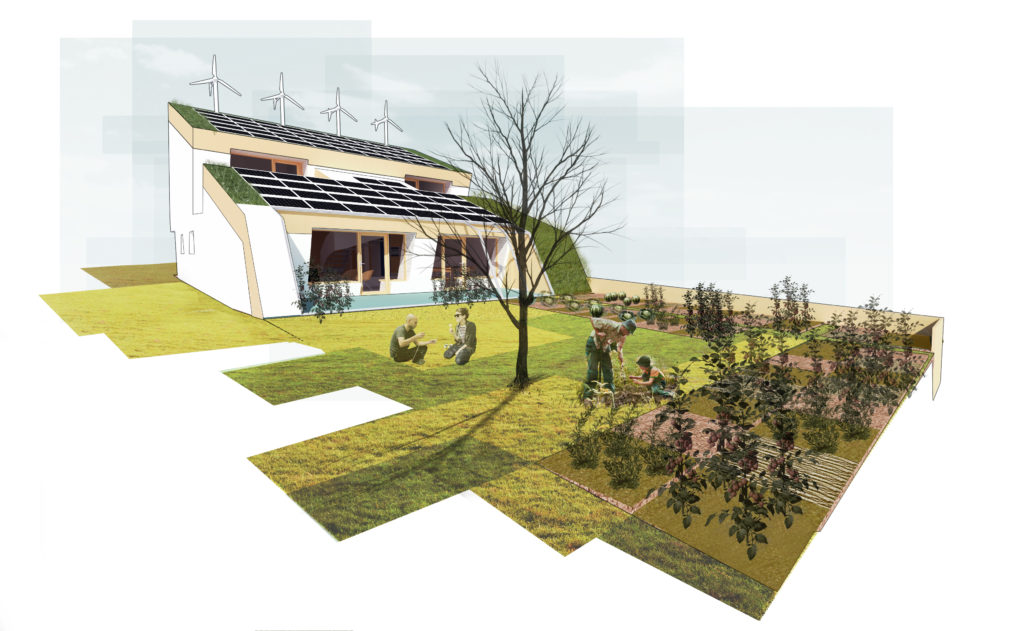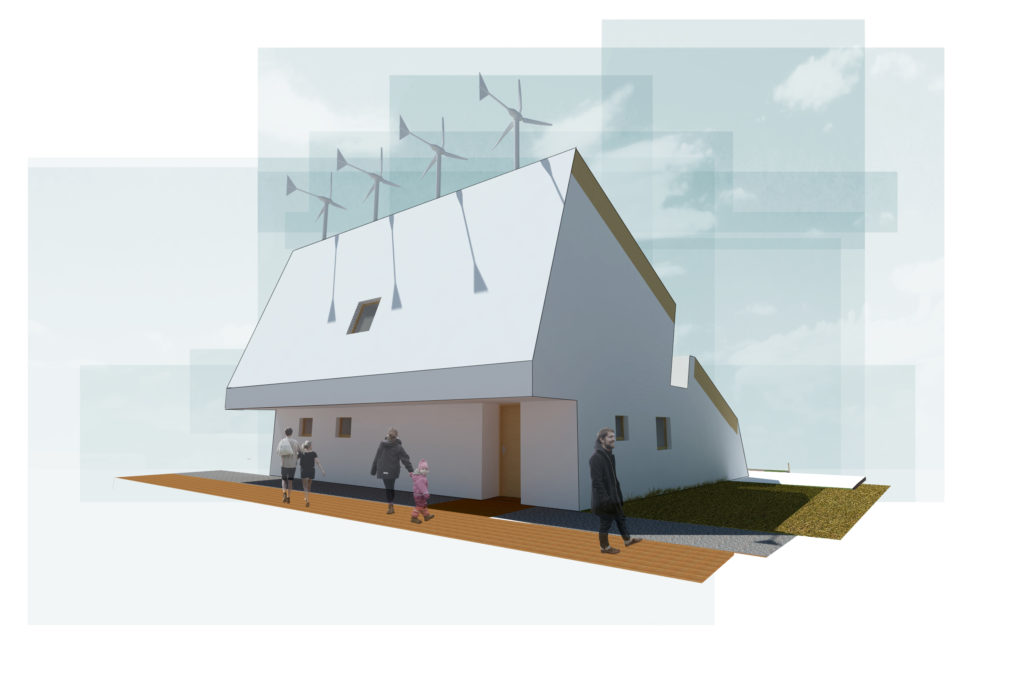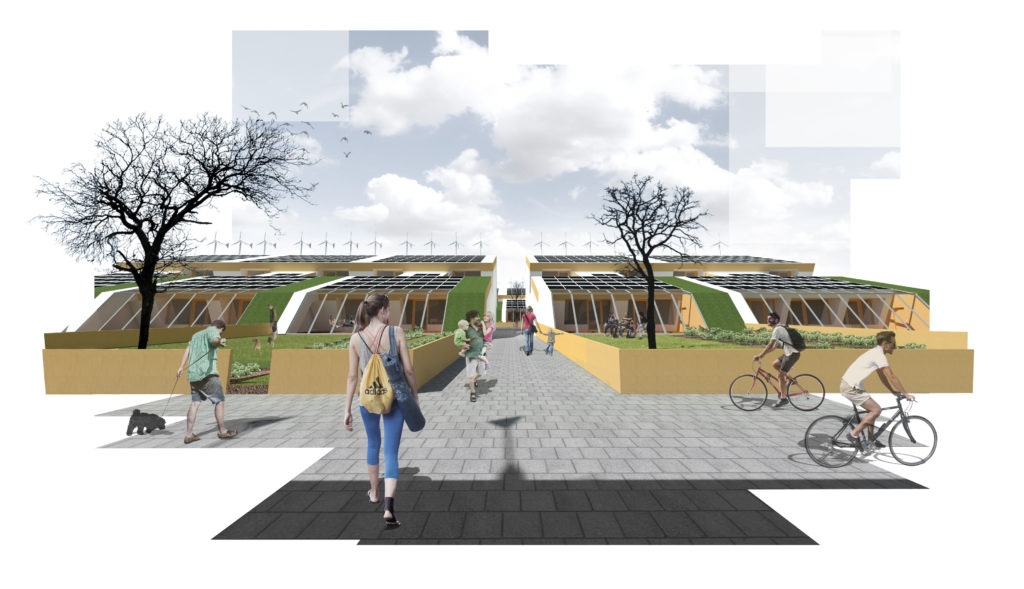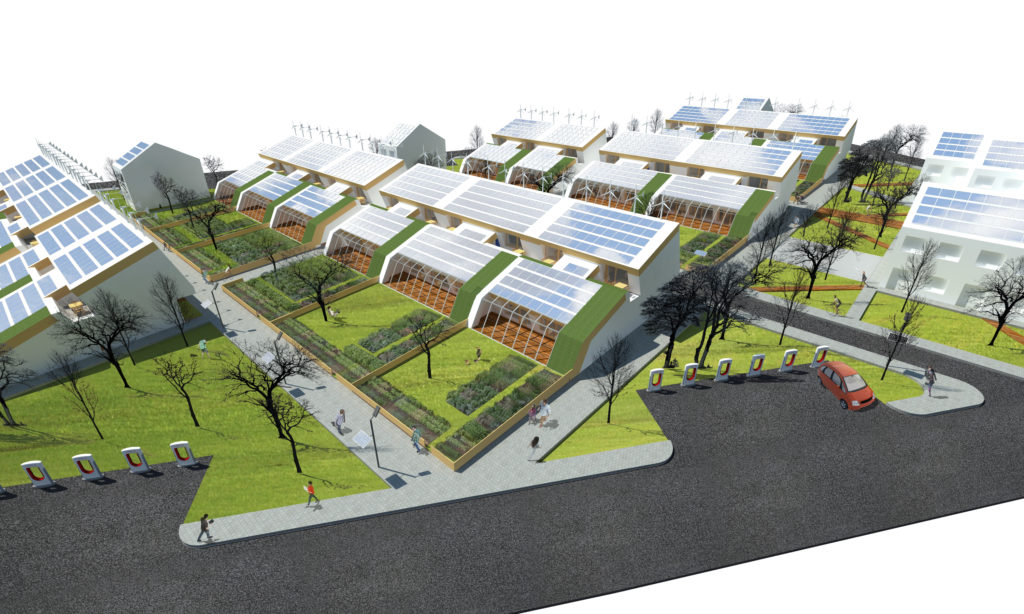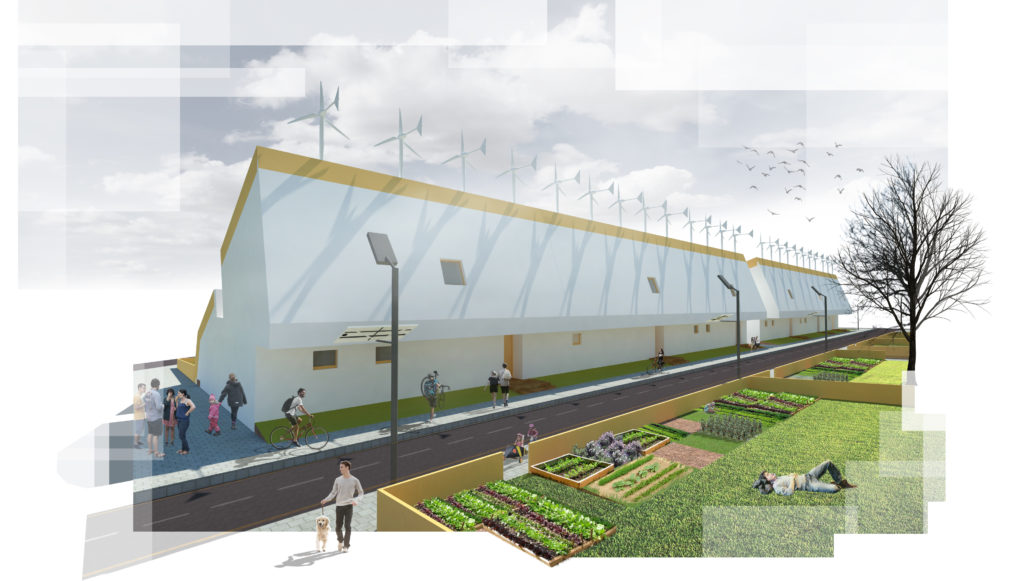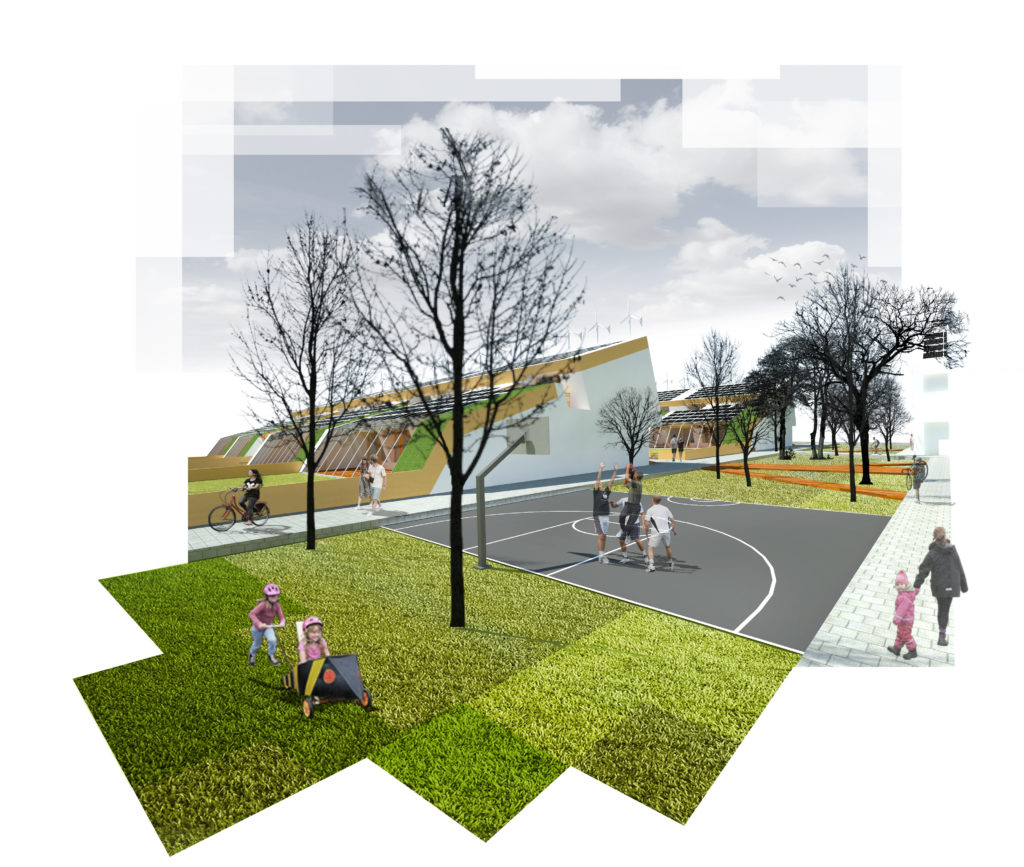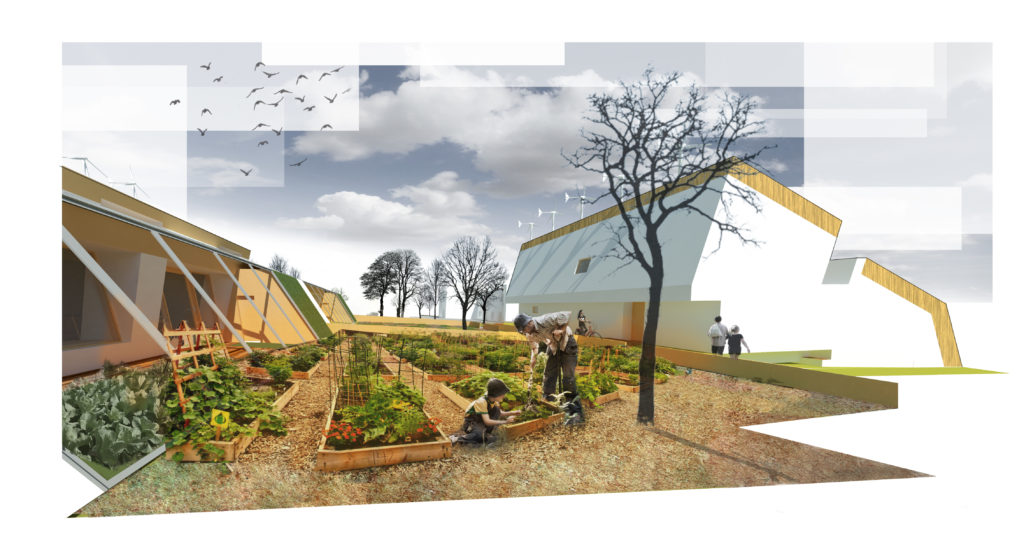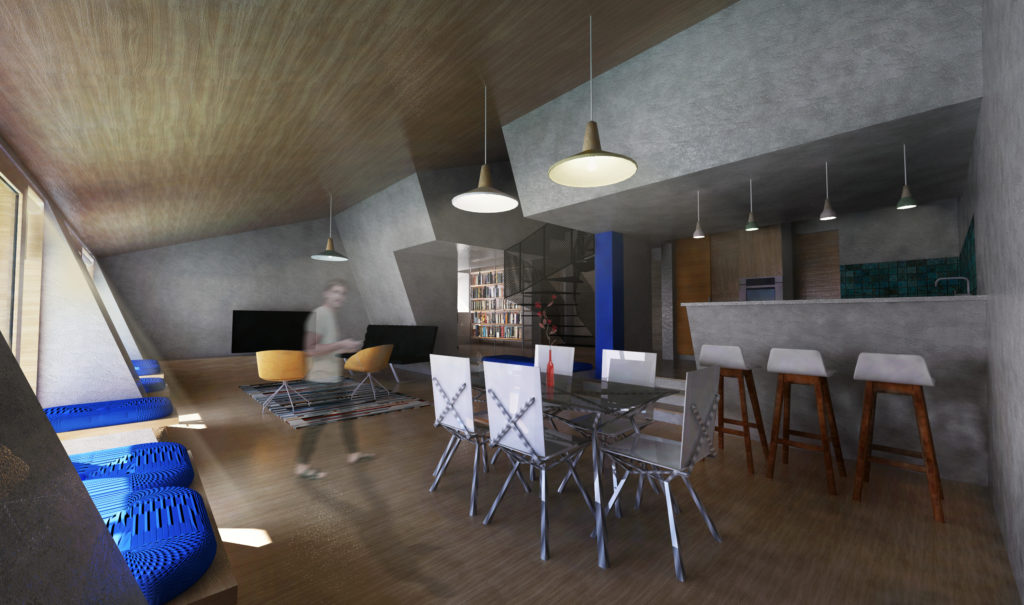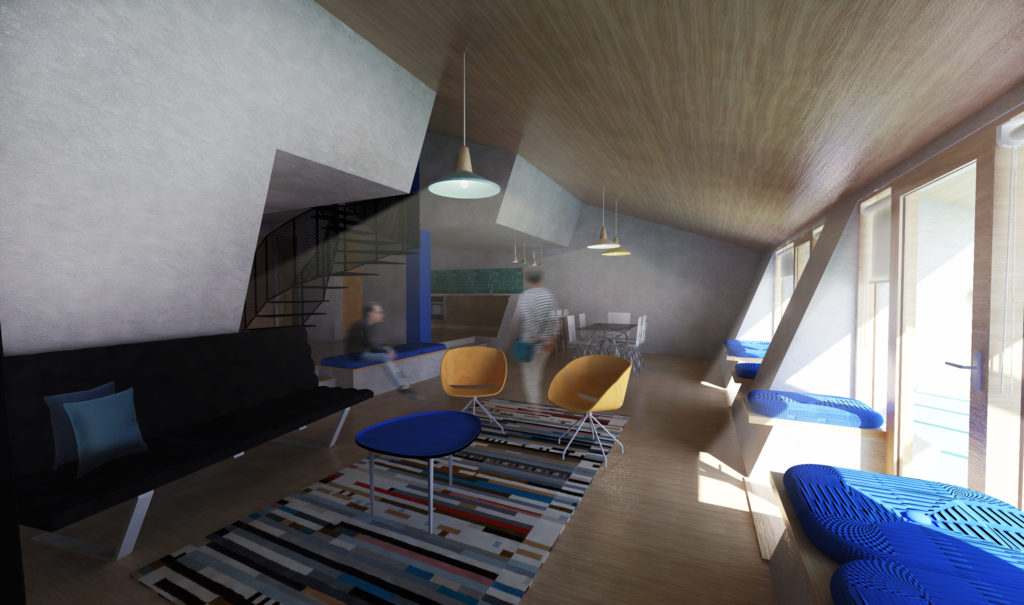This project deals with the problems and difficulties mankind and society is increasingly facing due to climate change, especially the strains climate change puts on families and their economies.
This project argues that buildings no longer exclusively belong to the demand side of the energy system, rather they have become a convenient way of generating energy. The proposed project provides a possible solution on Zero Emission Building can be beneficial to the social aspects of living in a sustainable way; this includes family relationships, working hours, nutrition and many other hedonistic aspects of healthy living.
Potential outcomes and causes of climate change have been analyzed and compared with computer simulations, in order to get the overall impact that they present to residential buildings in general as well as family economies.
A special attention in this regard is put on residential buildings, due to the extensive role they have on energy consumption and CO2 emissions, not excluding the fact that it is where people spend the majority of their time in. This project also considers the quality of life, sense of community, identity and other factors that further enhance the concept of Zero Emission Neighborhoods.
Results of this project point to the combination of passive solar design strategies, energy efficient appliances, and active solar systems that will lead to net zero energy performance given contemporary lifestyles and the impact of the digital age. The proposed model provides the necessary energy to cover the energy needs of the family, with the possibility of it becoming a source of income in the future. The case study presented here is the city of Prishtina, Kosovo, however the model is replicable and can be modified depending on the chosen location and/or the variable input.
